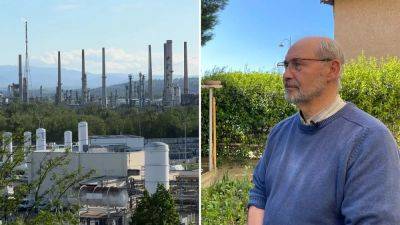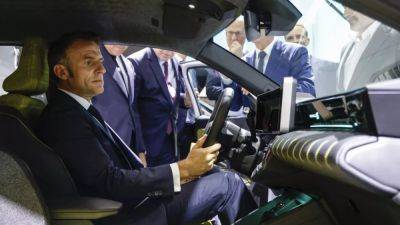Why are carmakers pleading for a respite from EU climate policy?
Sales of electric vehicles have plummeted, prompting carmakers to demand urgent intervention by the European Commission as they face huge fines for failure to comply with CO2 emissions standards. But is the automotive sector’s predicament the result of the cost-of-living crisis and would be buyers put off by a lack of charging infrastructure, or have manufacturers brought it upon themselves?
Euronews asked director general of the European Automobile Manufacturers' Association (ACEA), Sigrid de Vries, to explain why Europe’s largest car makers are pleading for leniency.
“We want to raise the flag and say, this is urgent!” de Vries said in a call with Euronews. “We see the trend declining, which is worrying, and that can have serious implications next year which we believe should be addressed now.”
ACEA highlighted the sales trend in question in a statement published the previous week: overall car sales fell over 18% year-on-year across the EU last month, with the market share of fully electric models falling from 21% to just over 14%. This is a problem, because the EU limit on CO2 emissions per kilometre is based on the average of all vehicles sold by a given manufacturer: if the share of zero-emissions cars falls, the overall average will go up.
The current maximum is 115.1 grammes per kilometre, but will drop to 93.6g next year. An even more stringent limit of 49.5g/km will apply from 2030 to 2034, before a zero-emission requirement kicks in from 2035 – a de facto ban on the sale of new petrol and diesel models.
Data released by the European Environment Agency in July shows just how far carmakers are falling behind: average emissions stood at 106.6g last year, a mere 1.4% lower than in 2022.
“We haven't reached the








